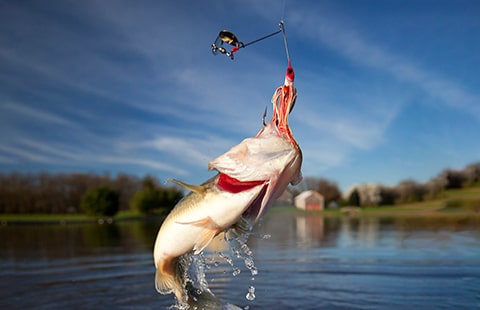Get unique, complex parts easily. No matter your requirements, Chaoyi Spring creates hard-to-produce coil springs and wire forms.
Let us help you create the custom wire form you need, from S-hooks and J-hooks to utility hooks and more.
We work closely with customers across a wide range of industries, helping them design and manufacture made-to-order parts.
Why choose Chaoyi Spring? We prioritize customer-focused collaboration, modern equipment and the latest technology to make your parts per print.
Find the information and guidance you need, from measuring a spring to learning about materials, placing an order and much more.
Choosing the right suspension system for your vehicle is crucial for a comfortable and safe driving experience. Two popular options are torsion bars and coil springs, each with its own


Choosing the right suspension system for your vehicle is crucial for a comfortable and safe driving experience. Two popular options are torsion bars and coil springs, each with its own unique characteristics. While both systems provide support and absorb shocks, they differ in their design, performance, and suitability for various applications. This article will delve into the intricacies of torsion bars and coil springs, exploring their advantages and disadvantages to help you make an informed decision about which suspension system is best suited for your needs.

Torsion bars are essentially long, solid steel rods that are twisted to absorb and release energy. They are commonly found in trucks, SUVs, and some sports cars. When a wheel encounters a bump, the torsion bar twists, absorbing the impact. As the wheel returns to its normal position, the twisted bar untwists, releasing the stored energy.
One of the main advantages of torsion bars is their simplicity and durability. They are relatively inexpensive to manufacture and maintain, as they have fewer moving parts than coil spring systems. This also contributes to their reputation for long-lasting performance. Additionally, torsion bars offer a more consistent ride than coil springs, as they tend to maintain a consistent spring rate throughout their range of motion.
However, torsion bars have some drawbacks. Adjusting ride height can be more challenging with torsion bars compared to coil springs. Also, since torsion bars are typically mounted lengthwise, they can take up valuable space in the chassis, limiting packaging options for other components.
Coil springs, as the name suggests, are made from a helical coil of wire. These springs work by compressing and extending to absorb and release energy. They are widely used in passenger cars and are known for their versatility and ability to provide a comfortable ride.
Coil springs excel in offering a variety of suspension configurations. They are relatively easy to adjust and can be fine-tuned for different ride heights and stiffness levels. This makes them popular for vehicles where comfort and handling are prioritized. Additionally, coil springs offer greater flexibility in terms of suspension geometry, allowing for better articulation and independent wheel movement, particularly beneficial for off-road vehicles.
However, coil springs also have their limitations. They are generally more complex to manufacture and maintain compared to torsion bars, as they require more components and have a higher likelihood of wear and tear. Coil springs can also be susceptible to sagging over time, which can affect ride quality.
Ultimately, the choice between torsion bars and coil springs depends on your individual needs and preferences. Here's a breakdown of their key differences:
| Feature | Torsion Bar | Coil Spring |
|---|---|---|
| Design | Solid steel rod | Helical coil of wire |
| Operation | Twisting | Compression and extension |
| Ride Quality | Consistent, but can be firm | More comfortable and customizable |
| Durability | Highly durable | Less durable than torsion bars |
| Maintenance | Low maintenance | Higher maintenance |
| Adjustability | Less adjustable | Highly adjustable |
| Cost | Less expensive | More expensive |
| Space Efficiency | Can take up more space | More space-efficient |
If you prioritize durability, simplicity, and a consistent ride, torsion bars may be the better option. They are typically found on vehicles designed for heavy-duty use or off-road driving, where their ruggedness and ability to handle rough terrain are valued.
If you prefer a comfortable ride, adjustability, and a wider range of suspension options, coil springs are the more suitable choice. They are popular on passenger cars, where comfort and driving dynamics are paramount.
It's important to note that these are just general guidelines, and the best suspension system for your vehicle will ultimately depend on your specific needs and driving habits. Consulting with a mechanic or suspension specialist can help you determine the optimal suspension system for your particular vehicle.
In the battle between torsion bars and coil springs, there is no clear-cut winner. Both systems have their own strengths and weaknesses. By carefully considering your priorities and the specific requirements of your vehicle, you can make an informed decision that will provide you with a safe and comfortable driving experience.
Browse some of the custom wire forms and springs that we manufacture. Don’t see what you need? We specialize in made-to-order products that meet your application requirements.
Visit Our GalleryNeed a custom wire form or coil spring? We make it work. Fill out the contact form and a representative will respond within 1 business day. If you have a PDF or CAD file, you can submit to request a quote.